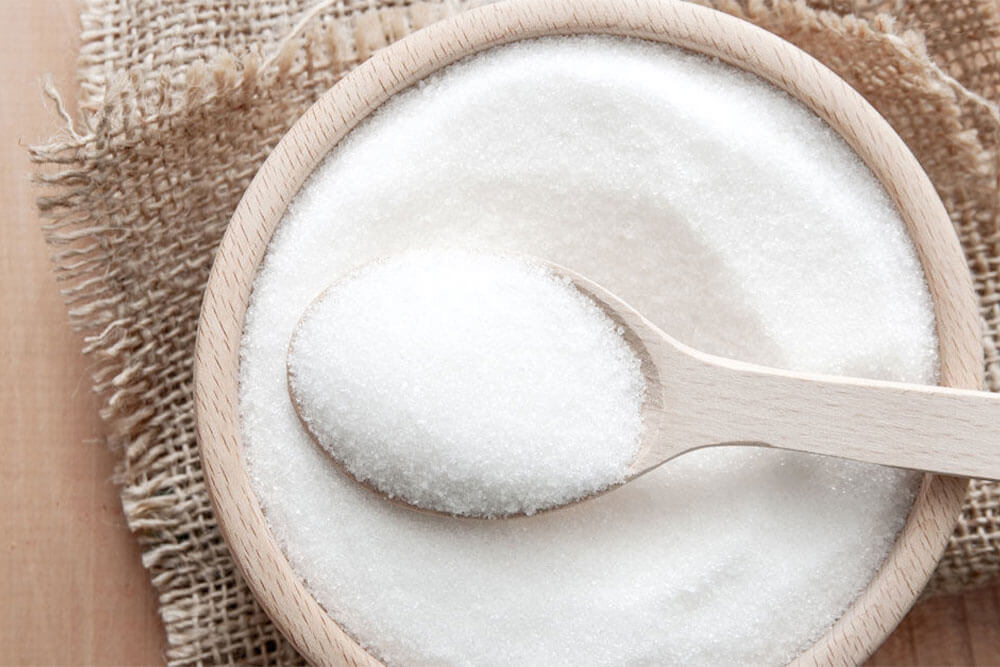Top Natural Sweeteners To Use For Innovative Treats

As you’ve noticed, healthy treats are on the rise. Today’s consumers are more mindful of the foods and beverages they are consuming. Particularly, sugar alternatives and natural plant-based sweeteners are playing a big role in creating snacks consumers can actually enjoy without sacrificing their dietary needs and concerns. As many food brands look into formulating with natural sweeteners, they may be wondering, “What kind of natural sweetener should we use?”. Choosing the best ingredients, like sweeteners, is something a protein bar co-packer can help out with, but for those entrepreneurs who are formulating on their own, here’s a list of the top natural sweeteners to consider.
1. Allulose
Allulose is a monosaccharide that naturally occurs in figs, raisins, and wheat. It is an all-natural, plant-based sweetener that is similar to regular sugar in its taste, texture, and appearance. Although allulose is similar to regular sugar, there are some stark differences: Allulose is approximately 70% as sweet and contains 1/10th of its calories. Not only that but allulose is also known to deliver health benefits including anti-inflammatory properties.
Since allulose isn't metabolized by the human body, it can be consumed without affecting sugar levels or making a negative impact on weight. This makes it the perfect sugar replacement for brands looking to create food innovations around keto, paleo, or vegan diets and is part of the reason why the market for allulose is projected for continuous growth.
2. Erythritol
Erythritol is a natural sugar alcohol found in many fruits and vegetables. Because of the way erythritol is structured, it stimulates a sweet taste on the receptors of our tongues. It contains a significantly lower amount of calories compared to regular sugar but, like allulose, offers a similar taste. It has 6% of the calories of regular sugar with 70% of its sweetness, making it a great all-natural sweetener for many vegan, paleo, and keto-friendly formulas. One of the main selling points of erythritol is its safe profile. Multiple studies have shown that erythritol is safe for consumption and can help with weight loss.
As the demand for erythritol increases, we recommend formulating with this all-natural sweetener to stay ahead in the saturated CPG space. It is a great low-calorie sugar alternative that has countless benefits beyond just regulating sugar levels.

3. Monk Fruit
Have you heard of monk fruit? Monk fruit is originally a small fruit native to China, but recently, it has been making a name for itself in the sugar market. Monk fruit sweetener is derived from the seeds and the skin of the fruit, which is then juiced and dried into a powder. It is 150 to 200 times sweeter than regular table sugar but is completely free of calories and carbohydrates. And when we say completely free, we mean 0 calories.
Right now, the market for monk fruit sweeteners is accelerating at a fast pace as consumers and brands become more interested in its anti-inflammatory, antioxidant, and zero-calorie properties. As a food innovator, using monk fruit sweeteners in your treats will relieve your customers of worries about their calorie intake since it is a zero-calorie sweetener. Additionally, because monk fruit sweeteners are over 100 times sweeter than traditional sugar, you will be able to use less overall product per production run on your treats, which will lower costs on your end.
4. Stevia
For years, stevia has been the face of natural sweeteners all over the world, but what makes it great? Stevia is a natural sweetener derived from the leaves of the stevia plant. Despite being up to 300 times sweeter than regular sugar, Stevia has no carbohydrates, calories, or artificial ingredients. As a result, it has long been one of the most popular alternative sweeteners on the market. Another great benefit of stevia is that, like monk fruit, its sweetness level exceeds that of table sugar, which means that you can just use a small amount within your formulations and still yield delicious and sweet results.
An easy way for brands to transition into using all-natural sweeteners is to start by using Stevia. Because it is one of the most recognizable names for consumers looking into traditional sugar alternatives, utilizing it will allow you to take advantage of that familiarity and general trust in consumers.
Innovations around Natural Sweeteners
Due to their countless health benefits and increasing consumer demand, many food visionaries and entrepreneurs are investing in natural sweeteners, and we don’t expect this to change anytime soon. In fact, natural sweeteners are evolving at a fast pace. With so many advancements in technology and equipment, scientists are constantly developing new techniques and practices. For example, manufacturers are playing around with microbes and fermentation to produce natural sweeteners, as well as better-tasting steviol glycosides to reduce costs and improve the taste of these sugar alternatives.
Key Takeaways
Natural sweeteners are a great opportunity to break into the CPG market. Brands using natural plant-based sweeteners in their cereal, rice crispy, cookies, and protein bar formulas will be able to stand out from the competition and, even, leverage the “low sugar” health claims to capture the attention of sugar-conscious consumers.
Nonetheless, we understand that adding new ingredients to already established recipes can be a challenge. That’s why you should look into partnering with a certified protein bar co-manufacturer, like YouBar, that has the ability and certifications to bring your products to life. For more information on our services, contact us today.



